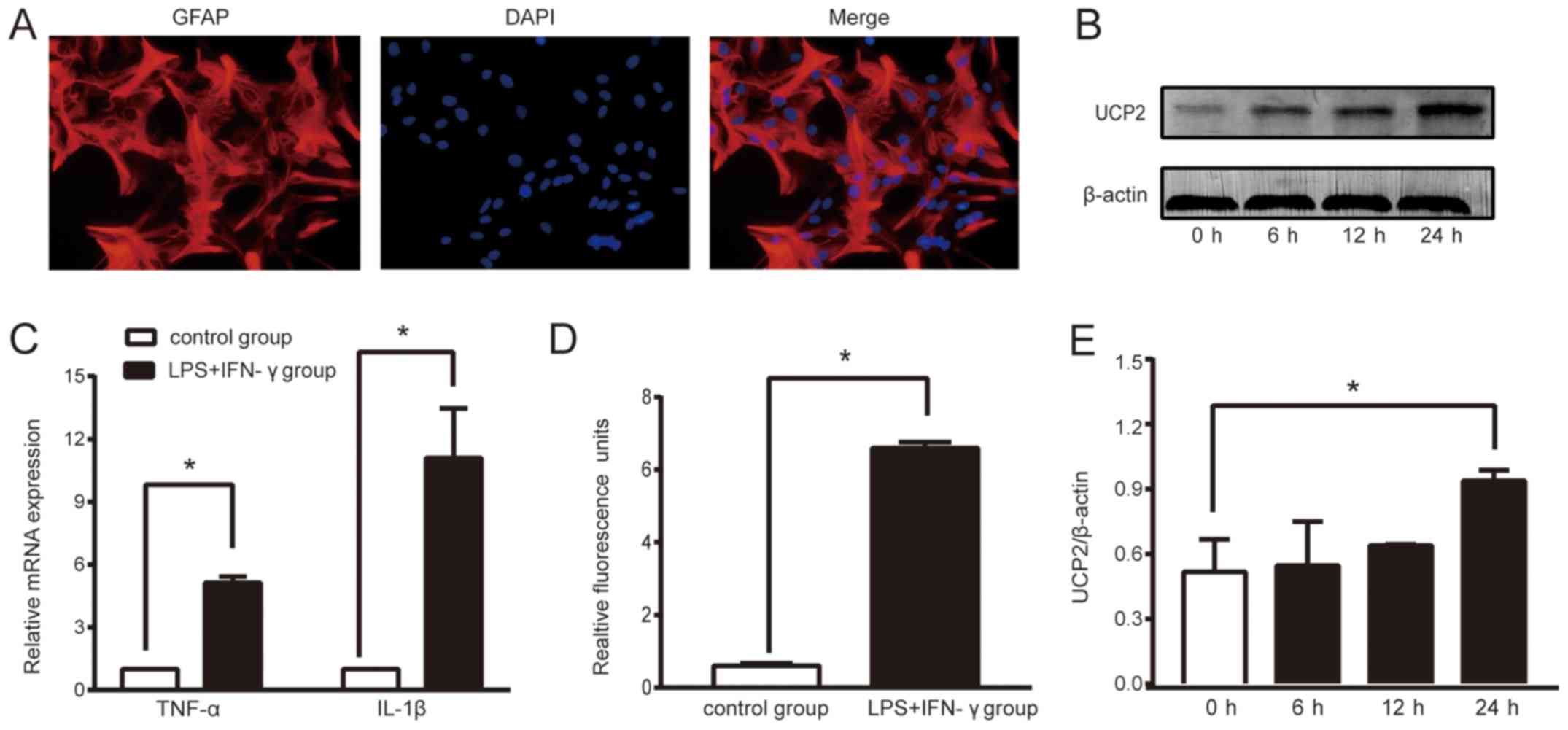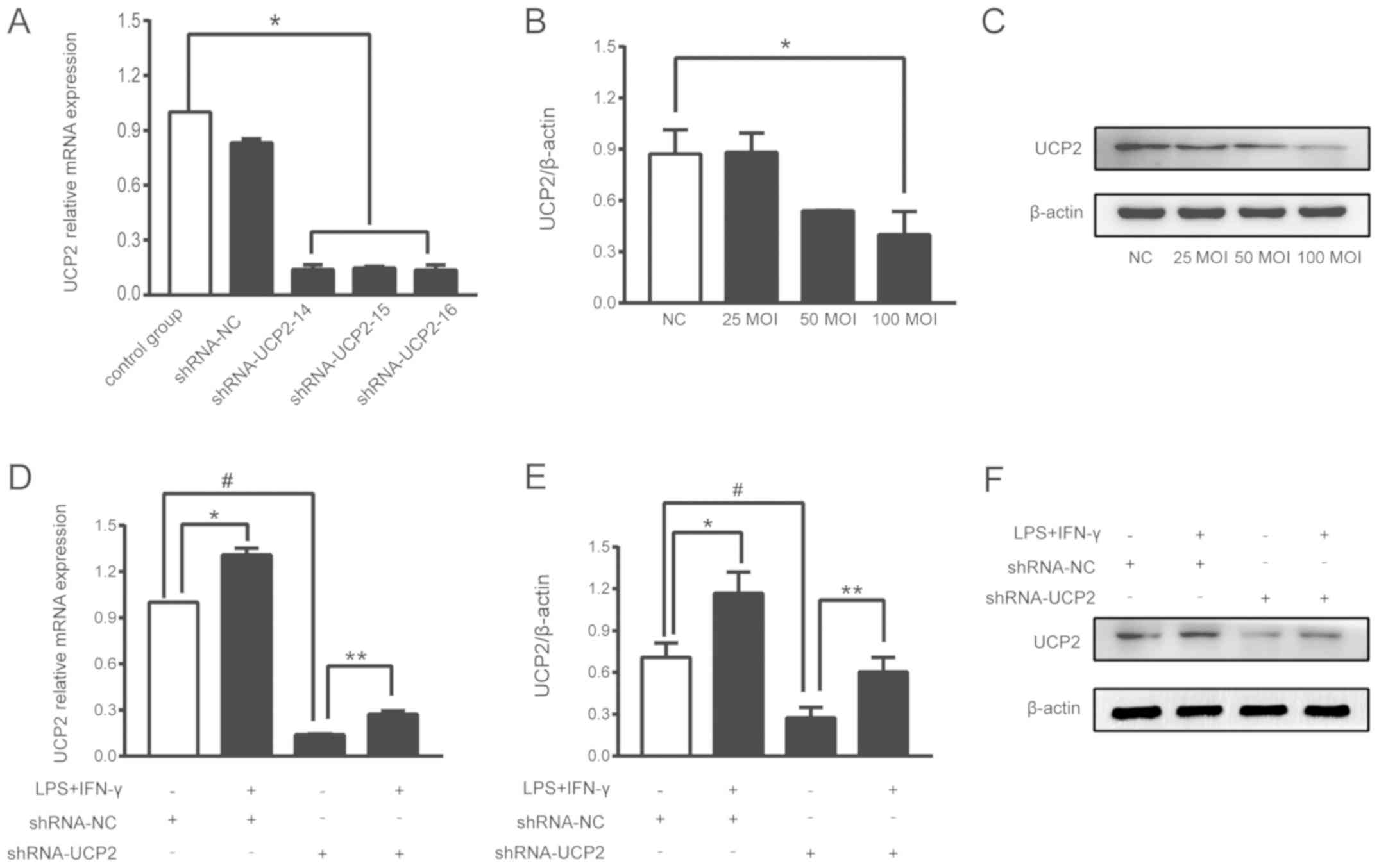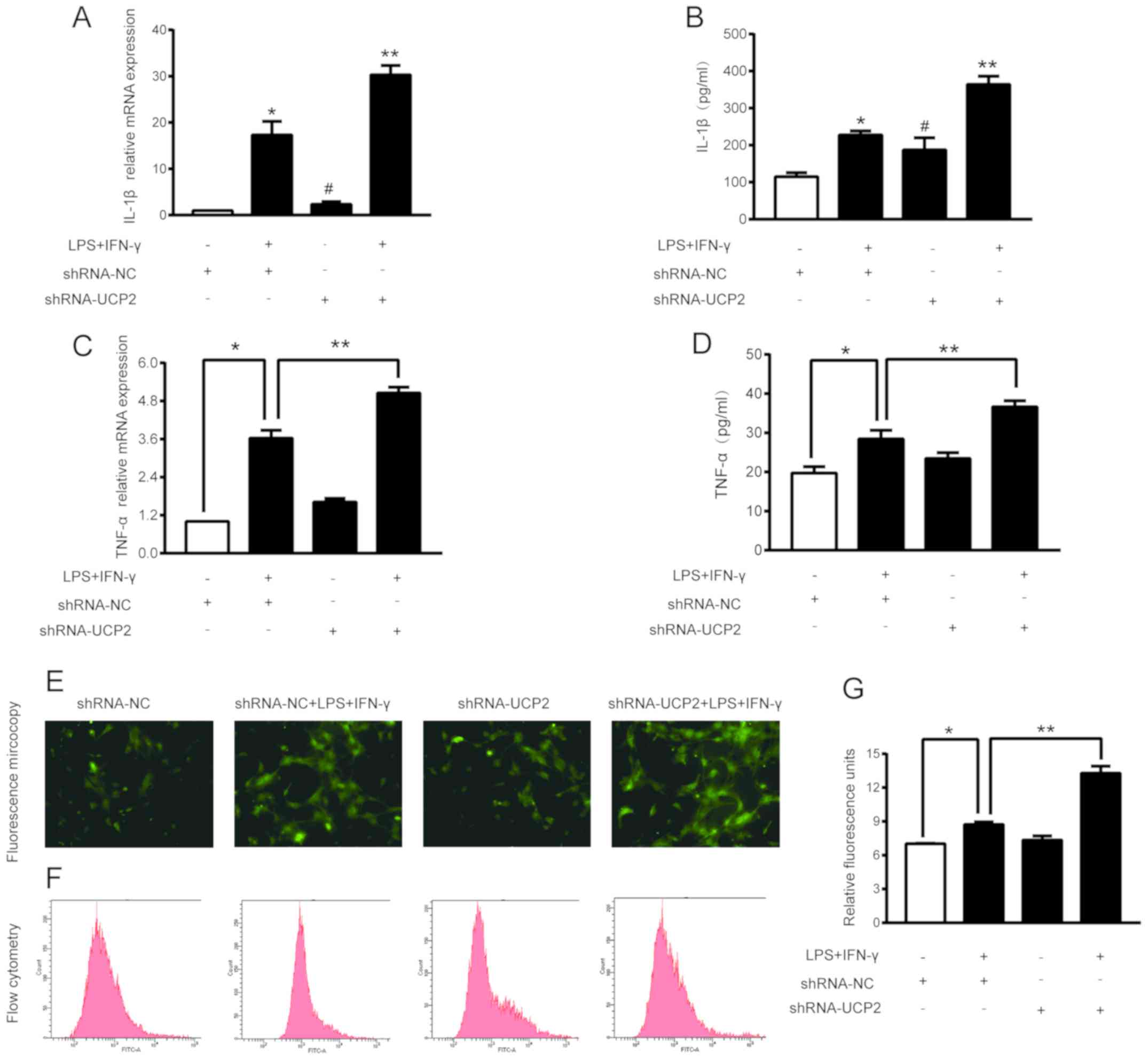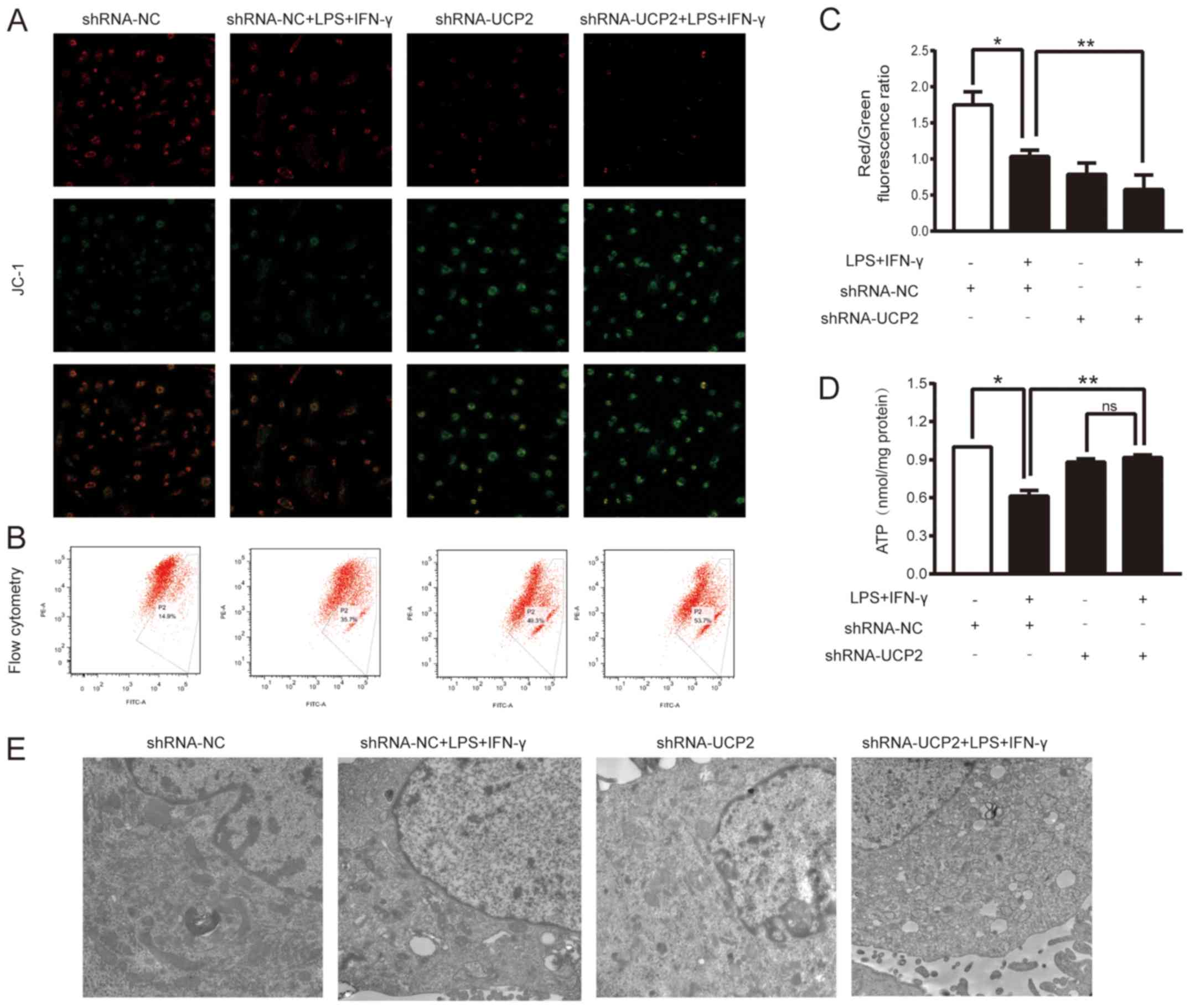|
1
|
Hawiger J, Veach RA and Zienkiewicz J: New
paradigms in sepsis: From prevention to protection of failing
microcirculation. J Thromb Haemost. 13:1743–1756. 2015. View Article : Google Scholar : PubMed/NCBI
|
|
2
|
Chaudhry N and Duggal AK: Sepsis
associated encephalopathy. Adv Med. 2014:7623202014. View Article : Google Scholar : PubMed/NCBI
|
|
3
|
Helbing DL, Bohm L and Witte OW:
Sepsis-associated encephalopathy. CMAJ. 190:E10832018. View Article : Google Scholar : PubMed/NCBI
|
|
4
|
Eyenga P, Roussel D, Morel J, Rey B,
Romestaing C, Gueguen-Chaignon V, Sheu SS and Viale JP: Time course
of liver mitochondrial function and intrinsic changes in oxidative
phosphorylation in a rat model of sepsis. Intensive Care Med Exp.
6:312018. View Article : Google Scholar : PubMed/NCBI
|
|
5
|
Dutra MR, Feliciano RD, Jacinto KR,
Gouveia TL, Brigidio E, Serra AJ, Morris M, Naffah-Mazzacoratti MD
and Silva JA Jr: Protective role of UCP2 in oxidative stress and
apoptosis during the silent phase of an experimental model of
epilepsy induced by pilocarpine. Oxid Med Cell Longev.
6:67367212018.
|
|
6
|
Chen XL, Wang Y, Peng WW, Zheng YJ, Zhang
TN, Wang PJ, Huang JD and Zeng QY: Effects of interleukin-6 and
IL-6/AMPK signaling pathway on mitochondrial biogenesis and
astrocytes viability under experimental septic condition. Int
Immunopharmacol. 59:287–294. 2018. View Article : Google Scholar : PubMed/NCBI
|
|
7
|
Molofsky AV and Deneen B: Astrocyte
development: A guide for the perplexed. Glia. 63:1320–1329. 2015.
View Article : Google Scholar : PubMed/NCBI
|
|
8
|
Donadelli M, Dando I, Fiorini C and
Palmieri M: UCP2, a mitochondrial protein regulated at multiple
levels. Cell Mol Life Sci. 71:1171–1190. 2014. View Article : Google Scholar : PubMed/NCBI
|
|
9
|
Moukdar F, Robidoux J, Lyght O, Pi J,
Daniel KW and Collins S: Reduced antioxidant capacity and
diet-induced atherosclerosis in uncoupling protein-2-deficient
mice. J Lipid Res. 50:59–70. 2009. View Article : Google Scholar : PubMed/NCBI
|
|
10
|
Haines B and Li PA: Overexpression of
mitochondrial uncoupling protein 2 inhibits inflammatory cytokines
and activates cell survival factors after cerebral ischemia. PLoS
One. 7:e317392012. View Article : Google Scholar : PubMed/NCBI
|
|
11
|
Vogler S, Pahnke J, Rousset S, Ricquier D,
Moch H, Miroux B and Ibrahim SM: Uncoupling protein 2 has
protective function during experimental autoimmune
encephalomyelitis. Am J Pathol. 168:1570–1575. 2006. View Article : Google Scholar : PubMed/NCBI
|
|
12
|
Chen W, Luo S, Xie P, Hou T, Yu T and Fu
X: Overexpressed UCP2 regulates mitochondrial flashes and reverses
lipopolysaccharide-induced cardiomyocytes injury. Am J Transl Res.
10:1347–1356. 2018.PubMed/NCBI
|
|
13
|
Singer M: The role of mitochondrial
dysfunction in sepsis-induced multi-organ failure. Virulence.
5:66–72. 2014. View Article : Google Scholar : PubMed/NCBI
|
|
14
|
Deng S, Yang Y, Han Y, Li X, Wang X, Li X,
Zhang Z and Wang Y: UCP2 inhibits ROS-mediated apoptosis in A549
under hypoxic conditions. PLoS One. 7:e307142012. View Article : Google Scholar : PubMed/NCBI
|
|
15
|
Zhao YZ, Gao ZY, Ma LQ, Zhuang YY and Guan
FL: Research on biogenesis of mitochondria in astrocytes in
sepsis-associated encephalopathy models. Eur Rev Med Pharmacol Sci.
21:3924–3934. 2017.PubMed/NCBI
|
|
16
|
Lu M, Zhao FF, Tang JJ, Su CJ, Fan Y, Ding
JH, Bian JS and Hu G: The neuroprotection of hydrogen sulfide
against MPTP-induced dopaminergic neuron degeneration involves
uncoupling protein 2 rather than ATP-sensitive potassium channels.
Antioxid Redox Signal. 17:849–859. 2012. View Article : Google Scholar : PubMed/NCBI
|
|
17
|
Wang T, Chen Y, Zhang J, Chen G, Zhang J,
Huang J and Zeng Q: Protective effects and mechanism of insulin on
brain in septic rats. Chin J Appl Clin Pediatr. 32:856–860.
2017.
|
|
18
|
Livak KJ and Schmittgen TD: Analysis of
relative gene expression data using real-time quantitative PCR and
the 2(-Delta Delta C(T)) method. Methods. 25:402–408. 2001.
View Article : Google Scholar : PubMed/NCBI
|
|
19
|
Lyu J, Zheng G, Chen Z, Wang B, Tao S,
Xiang D, Xie M, Huang J, Liu C and Zeng Q: Sepsis-induced brain
mitochondrial dysfunction is associated with altered mitochondrial
Src and PTP1B levels. Brain Res. 1620:130–138. 2015. View Article : Google Scholar : PubMed/NCBI
|
|
20
|
Chen GD, Zhang JL, Chen YT, Zhang JX, Wang
T and Zeng QY: Insulin alleviates mitochondrial oxidative stress
involving upregulation of superoxide dismutase 2 and uncoupling
protein 2 in septic acute kidney injury. Exp Ther Med.
15:3967–3975. 2018.PubMed/NCBI
|
|
21
|
Zheng G, Lyu J, Liu S, Huang J, Liu C,
Xiang D, Xie M and Zeng Q: Silencing of uncoupling protein 2 by
small interfering RNA aggravates mitochondrial dysfunction in
cardiomyocytes under septic conditions. Int J Mol Med.
35:1525–1536. 2015. View Article : Google Scholar : PubMed/NCBI
|
|
22
|
Lu M, Sun XL, Qiao C, Liu Y, Ding JH and
Hu G: Uncoupling protein 2 deficiency aggravates astrocytic
endoplasmic reticulum stress and nod-like receptor protein 3
inflammasome activation. Neurobiol Aging. 35:421–430. 2014.
View Article : Google Scholar : PubMed/NCBI
|
|
23
|
Normoyle KP, Kim M, Farahvar A, Llano D,
Jackson K and Wang H: The emerging neuroprotective role of
mitochondrial uncoupling protein-2 in traumatic brain injury.
Transl Neurosci. 6:179–186. 2015. View Article : Google Scholar : PubMed/NCBI
|
|
24
|
Braun RJ: Mitochondrion-mediated cell
death: Dissecting yeast apoptosis for a better understanding of
neurodegeneration. Front Oncol. 2:1822012. View Article : Google Scholar : PubMed/NCBI
|
|
25
|
Xiong W, Hua J, Liu Z, Cai W, Bai Y, Zhan
Q, Lai W, Zeng Q, Ren H and Xu D: PTEN induced putative kinase 1
(PINK1) alleviates angiotensin II-induced cardiac injury by
ameliorating mitochondrial dysfunction. Int J Cardiol. 266:198–205.
2018. View Article : Google Scholar : PubMed/NCBI
|


















